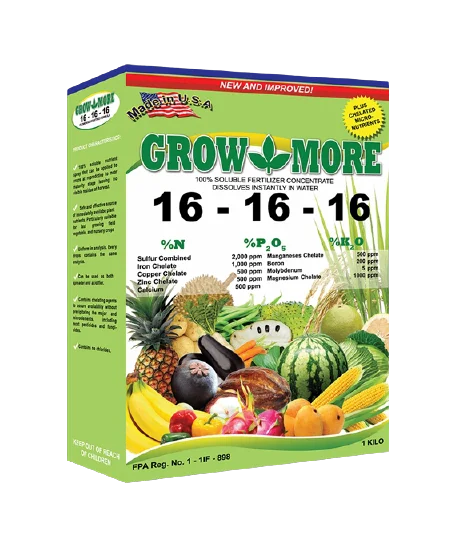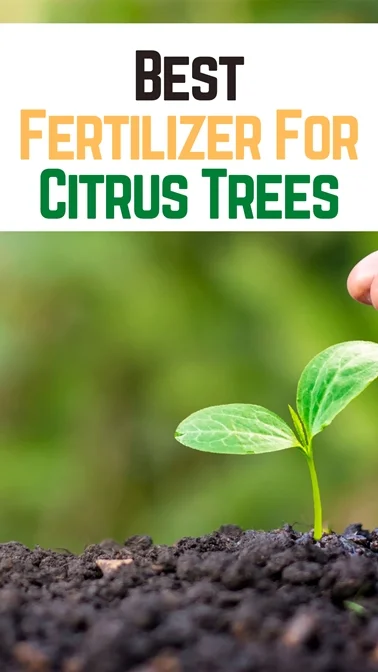Citrus trees include a whole range of trees, including lemon, orange, lime, grapefruits, tangelos, tangerines/mandarins, and grapefruit trees.
Lack of the proper nutrients may cause the trees not to bear fruit, and if it does, the fruit might not be as healthy and sweet as it should be.
Analysis Of Facts And Best Fertilizer For Citrus Trees
Citrus trees need a balanced fertilizer, N-P-K fertilizer, and a combination of nitrogen, phosphorus, and potassium to get a good crop of sweet, healthy, and juicy citrus fruits.
Citrus trees can be grown both outdoors and indoors, hence requiring slightly different fertilization.
For best results and quality results, the farmer should do a soil test to determine the soil needs to get the right fertilizer, as the best fertilizer for soil depends on the balance of nutrients in the soil.
The most vital nutrients are nitrogen, phosphorus, and potassium for citrus trees. The N.P.K. ratio is determined by the percentage of nutrients in the soil. Hence, that’s why it’s essential to do a soil test.
Then, you can choose a fertilizer that matches the ratio helping your trees get full and much-needed nourishment.

For instance, if the soil test N.P.K. recommendation is 16-16-16, you will use a 16-16-16 N.P.K. ratio for your plants. Hence, the best fertilizer for citrus plants is N.P.K., but its ratio depends on the combination of nutrients in the soil.
The nitrogen rates significantly affect fruit quality, fruit size, and acid content in its juice.
It is advisable to use a slow-release fertilizer as citrus trees need to be watered often and, in the process, can wash out the nutrients.
When should you fertilize your citrus trees?
Young trees need more fertilizer than mature trees because they need more nitrogen to grow and develop. The trees must be correctly fertilized based on age and size to determine how much fertilizer the citrus needs.
The trees need to be fertilized around three times annually with essential nitrogen nutrients. Other nutrients required by citrus trees include micro-nutrients such as zinc, iron, and manganese.
It would be best if you gave young Citrus trees their first dose of fertilizer when the buds begin to swell, which commonly occurs in February or thereon.
During the active period (spring and summer), citrus trees should be fertilized once every two months and once every three months during the trees’ dormant periods (winter). As the tree grows older and matures, applying fertilizer should decrease as the tree ages.
How Do You Apply Fertilizer?
One should apply fertilizer according to the age of the trees to ensure the fertilizer reaches the entire root system of the tree.
For a citrus tree that is one meter tall, apply fertilizer in a one-meter circle around the tree. If the citrus tree is six meters tall, fertilizing should include the application of a six-meter circle around the tree.
This process ensures all the roots are covered for an efficient intake of nutrients from the fertilizer.
When should you not fertilize citrus trees?
Fertilizers should not be applied to newly transplanted citrus and should wait until they have been in the ground for one year. High-nitrogen fast-release fertilizer will injure the tender roots and encourage excessive top growth, which will impede establishment.
Further, it would be best not to fertilize your citrus trees in the cold season when they are not in active growth.
What Kind of Citrus Fertilizer Does Citrus Tree Require?
The use of natural fertilizer is ecologically sound, and it reduces the risk of harming your citrus through over-fertilization.
They are slow-acting, as they need to be broken down into nutrients by bacteria before being absorbed into the soil, making it impossible to harm citrus trees because of their slow action.
It’s advisable to use natural fertilizers, as excessive inorganic fertilizer applications may reduce the plant’s yield and damage the quality of the fruit. The overuse of inorganic fertilizer will also pollute the soil and irrigation water.
Natural Fertilizer For Citrus Trees
Compost and manure are two common natural fertilizers.
Natural fertilizer may contain cow manure, poultry manure, earthworm castings, or biodegradable vegetable waste (compost).
Natural fertilizers contain no chemicals, and for the best organic fruits, organic fertilizer is the best.
Recommendations And Conclusion
The amount of fertilizer applied to your citrus trees should be derived by dividing between what the crop needs and what the soil provides in its natural form.
Hence, recommendations for fertilizer programs should be based on soil testing, the age of the trees, fruit load, soil fertility, and nutrients in the soil.
Inorganic fertilizers may grow more volume of food, while organic fertilizers will give you more nutritious food. Organic fertilizers provide many more nutrients to the citrus tree without harming beneficial insects, algae, ciliates, fungi, nematodes, flagellates, and bacteria in the soil.





